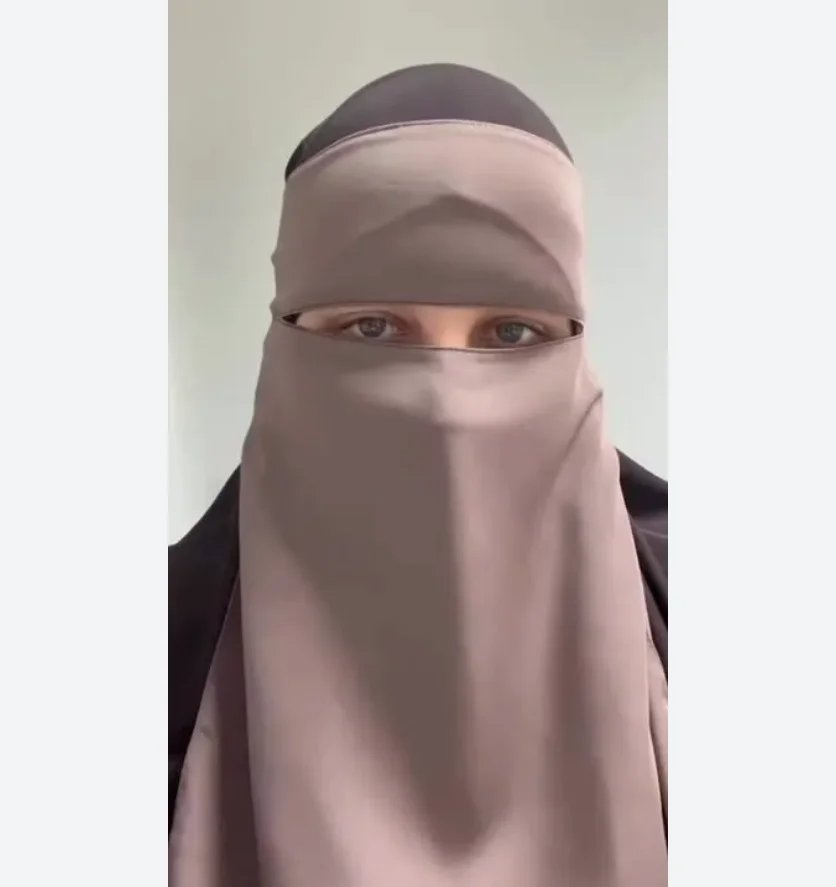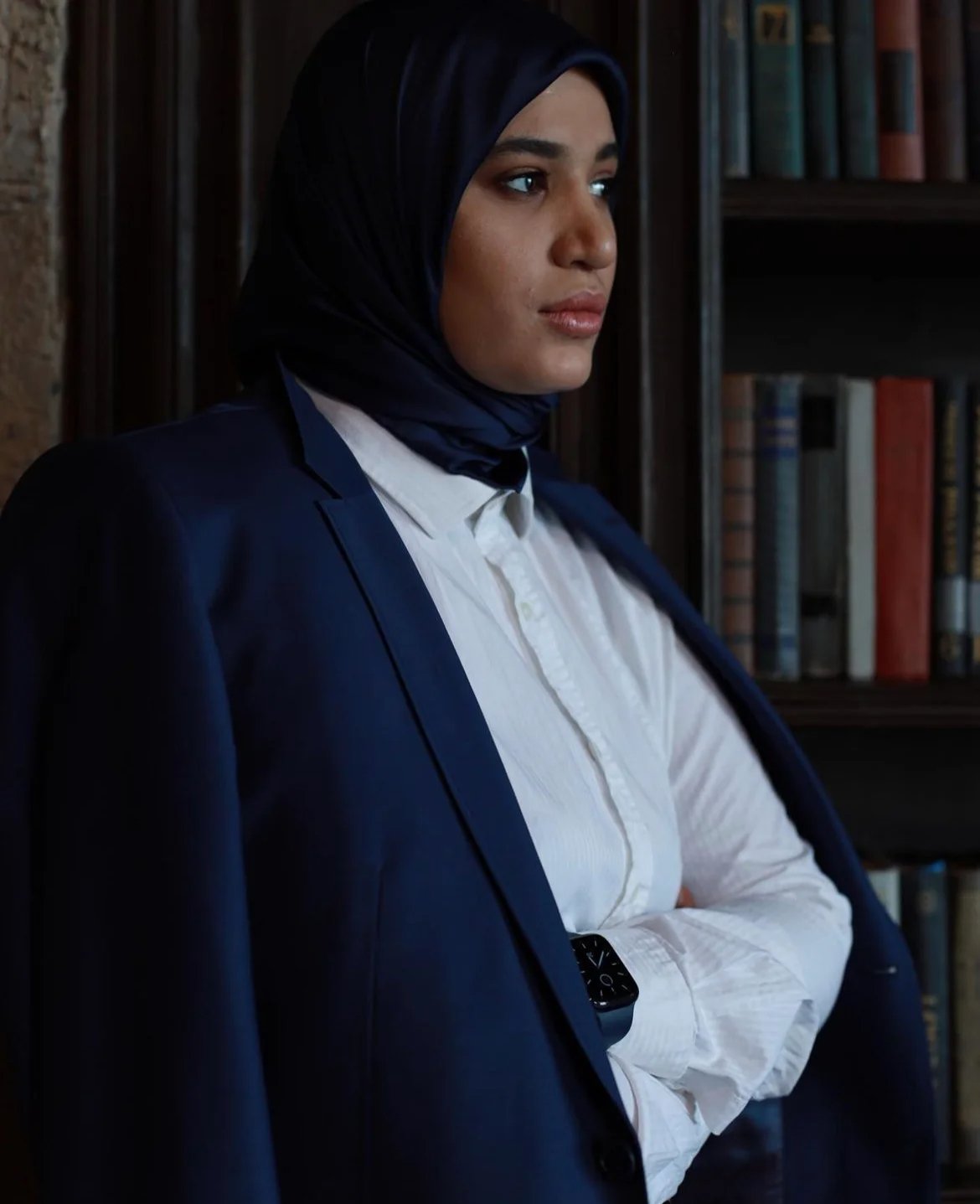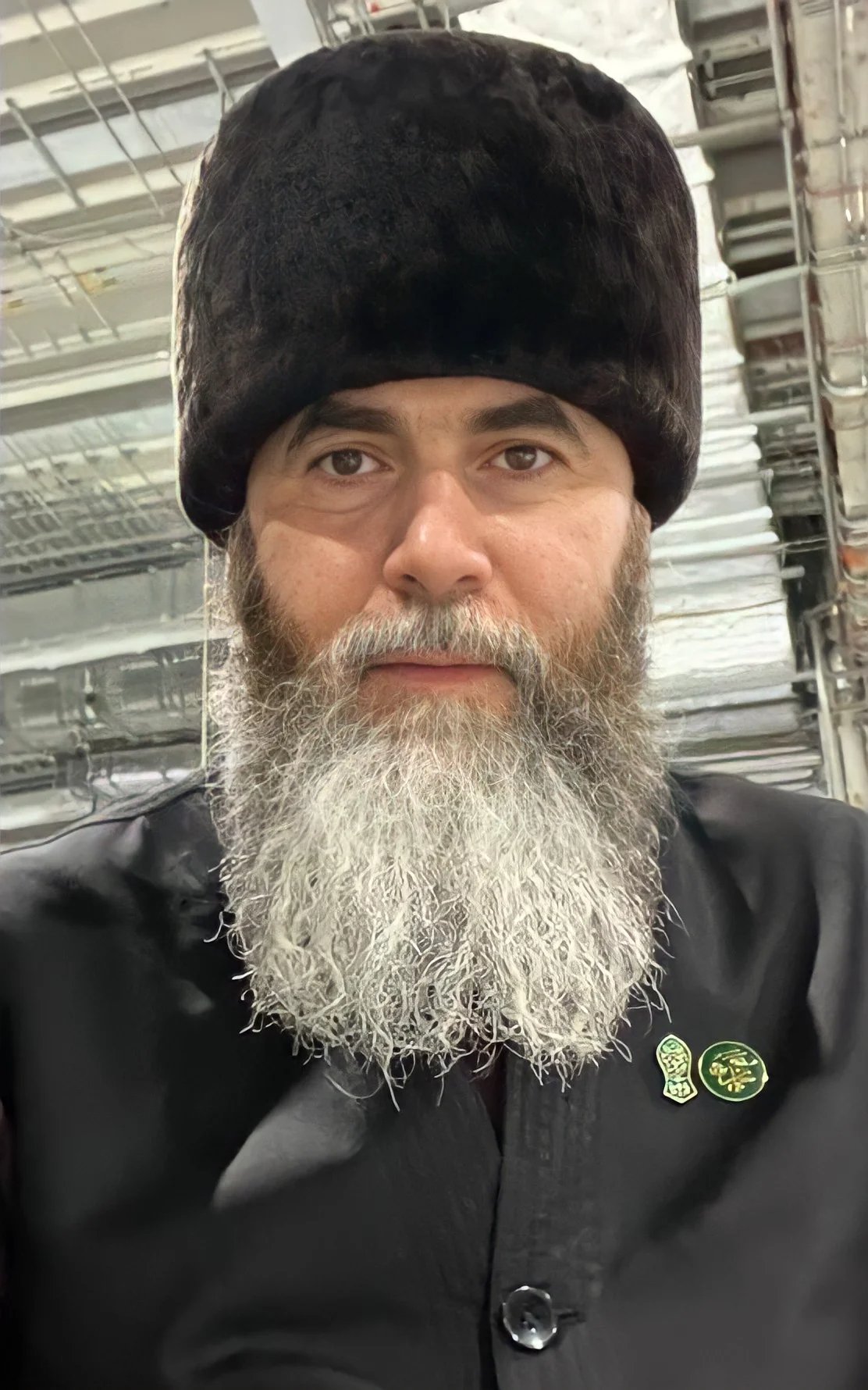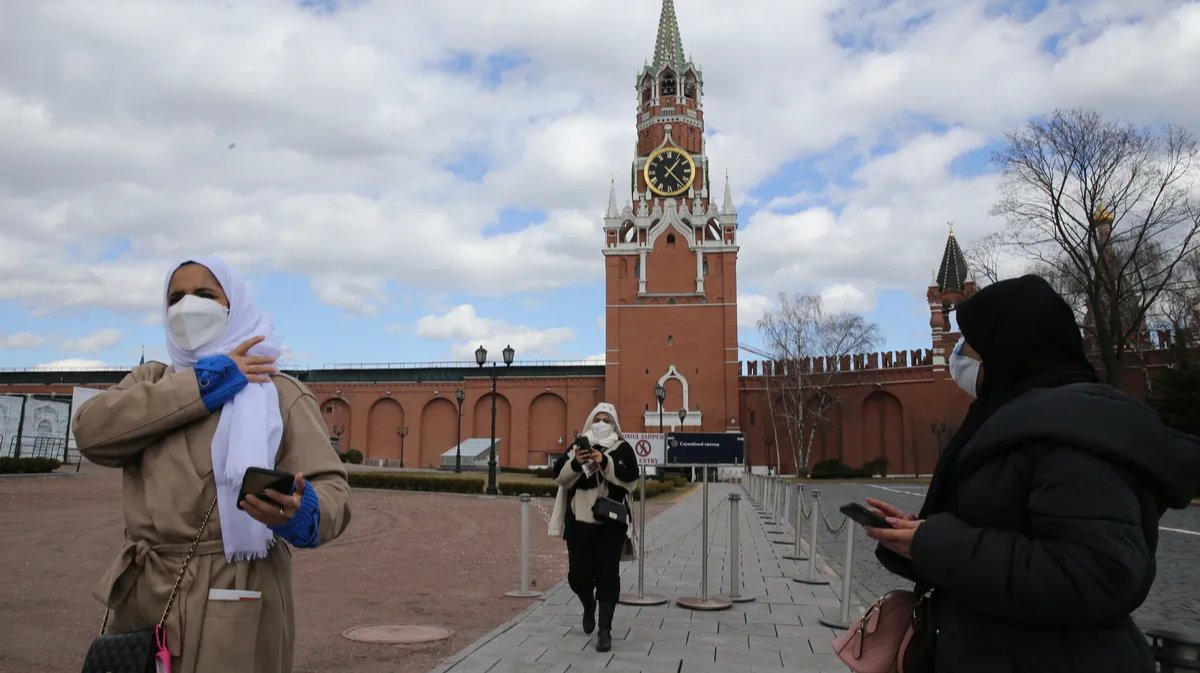A video of two men verbally harassing a Muslim woman for the way she was dressed on the Moscow metro went viral earlier this month, polarising public opinion and attracting attention from both the media and the authorities. Novaya-Europe took a closer look at the incident and asked Muslim women to share their experiences of wearing the hijab in Russia.
Moscow is often thought of as the epitome of Russia’s vast melting pot of ethnicities and religions, but a recent spate of verbal and physical attacks on Muslim women in the capital has raised eyebrows.
While taking the metro home earlier this month, Yelizaveta Baranovskaya, an ethnic Russian convert to Islam who has been wearing a niqab for several years, was accosted by a fellow passenger who demanded that she remove the garment. Arguing that Russians were “being killed in the special military operation,” the stranger then attempted to snatch the covering from Baranovskaya's face several times, calling it a potential “terrorist threat”.
While several passengers in the carriage took Baranovskaya's side and stood up for her, one passenger sided with the man, aggressively saying that he was “correct”.

Yelizaveta Baranovskaya. Photo: social media
Baranovskaya’s video of the incident quickly went viral, as did a follow-up recording she made to “clear things up” in which she stressed that the decision to wear a niqab had been her own. In refuting claims that she had “no right to wear a hijab in Russia”, Baranovskaya reminded viewers that “over 40 million Muslims live in Russia” and that their right to practise their religion freely was “enshrined in the constitution.”
Human rights activist Maryam Alieva was among the first to post the clip of the interaction in the metro. Originally from the majority-Muslim region of Dagestan in southern Russia, Alieva said shortly afterwards that she had found a lawyer to assist Baranovskaya with writing an official police complaint, and that the two men who harassed her had been detained and could be facing criminal charges.
While it’s true that Russia’s anti-extremism agency launched a probe into the incident and that the two men were summoned for a “conversation”, no further action was ultimately taken, although the case started gaining traction online and in the media.
Online nationalist communities responded to the incident by doxing Baranovskaya, while Muslim groups demanded that the man who harassed her be found and punished.
The situation quickly started getting out of hand, with a police officer reportedly sent to Baranovskaya’s home. “Nazi groups wanted to find her, beat her up, kill her,” Alieva said a few days later, adding that neither she nor the lawyer she found to represent her had subsequently been able to get in touch with Baranovskaya.
Russia’s state propaganda machine also waded into the incident, describing the attacker as someone who had been “just asking” Baranovskaya to remove her face covering, while suggesting that Baranovskaya practised a form of “non-traditional Islam” due to her decision to dress in “this unusual way”.
One TV channel even concluded that the entire incident was a “provocation staged by radical Islamists” and one academic went as far as saying that wearing a niqab was “not the wisest move” in a city that “still remembers terrorist attacks by radical Islamists”.

Maryam Alieva. Photo: Instagram
Alieva says she has been wearing a hijab herself since 2012, a decision she made after moving to Moscow from her native Dagestan. She recalls being met with aggressive reactions both in the Russian capital and in Dagestan during the early 2010s as it was still rare to see traditional Muslim clothing on women in the streets at the time.
She was repeatedly told that she had been forced to cover up and that her rights were being curtailed “even though it was my own choice,” Alieva recalls. “My whole family was against my decision. At the time, girls were beaten at home for wanting to wear a hijab.”
Alima, who lives in majority Muslim Ingushetia in Russia’s North Caucasus, has been wearing a niqab for two years now, noting that her whole family practises a “cultural” version of Islam without “delving too much into its depths”. When she initially wanted to wear the garment in 2012, Alima’s family opposed the decision. “People were freaked out by me both in Moscow and Ingushetia, calling me a nun,” she says, attributing the slow change in the public perception of the issue to the internet. While she says that in many ways things have improved, Alima adds she still faces “the same attitudes towards it as I did in the early 2010s”.

Chechen Mufti Salakh Mezhiev. Photo: Wikimedia Commons, CC BY-SA 4.0
Meanwhile, in predominantly Muslim Chechnya in southern Russia, wearing any kind of religious face covering has effectively been outlawed with the administration of Moscow-installed strongman Ramzan Kadyrov determined to stamp out any outward signs of Muslim extremism. The region’s most senior Muslim cleric, Mufti Salakh Mezhiev, went as far as reprimanding Chechen women who wore niqabs in 2020:
“The niqab is a tradition of certain nations. This tradition has nothing to do with our people.”
The top law enforcement official in the Chechen capital Grozny, Aslan Iraskhanov, even suggested that anyone wanting to sport a niqab would be better off leaving the region, suggesting that they had heard one too many Wahhabist prayers. “This is not allowed here, we won’t let it happen,” Iraskhanov warned.
Yasmina, a 25-year-old woman from Chechnya, who asked not to have her real name used, told Novaya-Europe that when her family returned to Chechnya from Germany in 2018, she had been surprised by the criticism she received for wearing the niqab, having always felt comfortable doing so in Europe.
“I was called out by my relatives as soon as I returned home, they said it’s not something that’s done in Chechnya.”
Yasmina recalls that she initially disregarded the warnings until her father was called in for a chat with officials at the local police station. He was eventually dismissed but was told that his daughter should stop covering her face if she didn’t want any trouble, “which I did,” Yasmina adds.

Woman in a hijab attacked in Moscow. Photo: video screenshot
The case of Yelizaveta Baranovskaya is not the only one of its kind to have taken place in the Moscow region lately. There have been at least three other attacks on Muslim women for their clothing choices in the past couple of weeks.
On August 30, a woman from the North Caucasus taking her children for a walk in a playground on the outskirts of Moscow was attacked by a group of women. The women first reportedly set their dogs on the family before proceeding to beat the woman and her children up, all the while hurling insults at the victim for wearing a hijab.
The woman’s lawyer, Ruslan Nagiev, said that his client’s knee ligament had been torn and she must now use crutches to walk. “The boy was treated for dog bites. He and his sisters were all traumatised,” Nagiev said, noting that the passers-by who came to the family's aid were the only thing preventing the attack from having a far more serious outcome.
Join us in rebuilding Novaya Gazeta Europe
The Russian government has banned independent media. We were forced to leave our country in order to keep doing our job, telling our readers about what is going on Russia, Ukraine and Europe.
We will continue fighting against warfare and dictatorship. We believe that freedom of speech is the most efficient antidote against tyranny. Support us financially to help us fight for peace and freedom.
By clicking the Support button, you agree to the processing of your personal data.
To cancel a regular donation, please write to [email protected]

